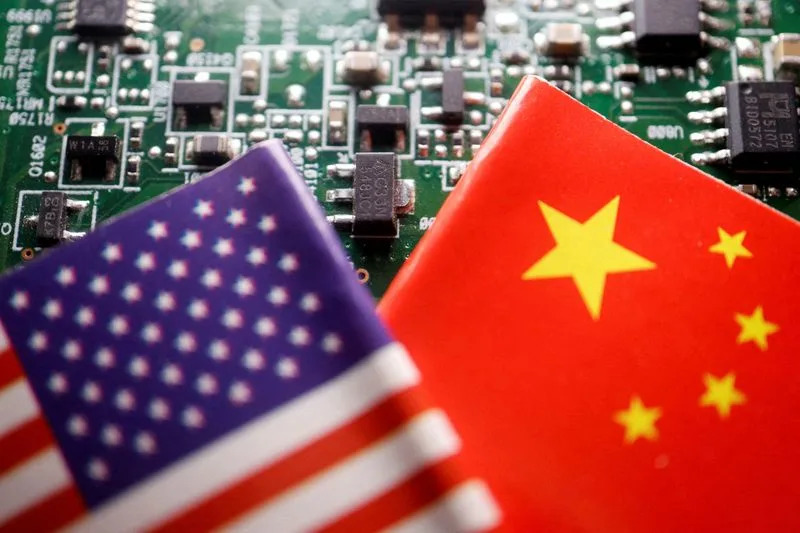China receives US equipment to make advanced chips despite new rules-report

Chinese companies are buying up U.S. chipmaking equipment to make advanced semiconductors, despite a raft of new export curbs aimed at thwarting advances in the country's semiconductor industry, a congressional report said on Tuesday.
The 741 page annual report, released by the House of Representative's bipartisan select committee on China, takes aim at the Biden administration's Oct. 2022 export curbs, which seek to bar Chinese chipmakers from getting U.S. chipmaking tools if they would be used to manufacture advanced chips at the 14 nanometer node or below.
With the Commerce Department using the 14 nanometer restriction limit, "importers are often able to purchase the equipment if they claim it is being used on an older production line, and with limited capacity for end-use inspections, it is difficult to verify the equipment is not being used to produce more advanced chips," the report stated.
The finding comes as the United States scrambles to figure out how Chinese telecoms giant Huawei was able to produce an advanced 7 nanometer chip to power its Mate 60 Pro smartphone at China's top chipmaker SMIC, despite the export curbs announced last year.
Huawei and SMIC were also added to a trade restriction list in 2019 and 2020, which in theory bars U.S. suppliers from shipping certain technology to the companies.
China watchers had theorized that SMIC could have made the chip with equipment obtained prior to the October 2022 rules, but it had other options for obtaining the equipment from oversees, the report shows.
The United States managed to plug a key loophole in its efforts to stymie China's access to advanced chipmaking tools by convincing allies Japan and the Netherlands, with similarly robust chipmaking equipment industries, to announce their own restrictions on exports of the coveted technology.
But China stockpiled equipment by taking advantage of the lagtime between the United States' October 2022 rules, and Japan and the Netherlands' similar moves in July and September of 2023 respectively, the report details.
According to the document, between January and August 2023, China imported $3.2 billion (RMB 23.5 billion) worth of semiconductor manufacturing machines from the Netherlands, a 96.1% increase over the $1.7 billion (RMB 12 billion) recorded over the same period in 2022. China's imports of semiconductor equipment from all countries totaled $13.8 billion (RMB 100 billion) over the first eight months of 2023, it added.
The report does not outline a specific recommendation to address the gaps in the U.S. rules, but urges Congress to request an annual evaluation, to be completed within 6 months by the General Accountability Office and later made public, of the effectiveness of export controls on chipmaking equipment to China.
- Questions and Answers
- Opinion
- Motivational and Inspiring Story
- Technology
- Live and Let live
- Focus
- Geopolitics
- Military-Arms/Equipment
- Ασφάλεια
- Economy
- Beasts of Nations
- Machine Tools-The “Mother Industry”
- Art
- Causes
- Crafts
- Dance
- Drinks
- Film/Movie
- Fitness
- Food
- Παιχνίδια
- Gardening
- Health
- Κεντρική Σελίδα
- Literature
- Music
- Networking
- άλλο
- Party
- Religion
- Shopping
- Sports
- Theater
- Health and Wellness
- News
- Culture


